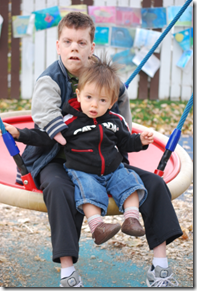Like most mother’s contemplating having a second child, I worry that it’s not possible for me to love my potential second child as much as my first. So when the article “Mom Confession: I think I love my son a little bit more” popped up, it really made me think.
Although I don’t doubt her sincerity that this is something she struggles with and wishes could improve, I do think that it was written in a intentionally provocative manner. If she were to say instead, I love both my kids, but with my son it is easy and I really struggle with my daughter, it would be hard to argue with wouldn’t it? Or even if she said that she finds herself favoring her son and being harder on her daughter it would be pretty easy to empathize with.
But instead, she decided to say that she actually love her son more than her daughter. This just rubs people the wrong way. I’ve heard many people point out that the daughter may read this one day and you can’t un-ring the bell. But even if her daughter manages to understand what her mother is going through and be able to deal with that, she may not be able to deal with the taunting of classmates who end up reading the article. Not to mention the possible implications for the son. It can be just as difficult for the son to read that his mother loved him best. It could make him full of himself or immensely guilty that his sister didn’t receive her fair share of his mother’s love and attention. And even more so because it’s out for the world to see.
But I will say one thing for this article – it did make me think. And I’ve realized that I may not love my kids all the same, I may love them differently and that’s okay. They will after all be different people with different personalities, strengths and challenges. but I know I’ll love them all just as much. And every child deserves to be told that.







